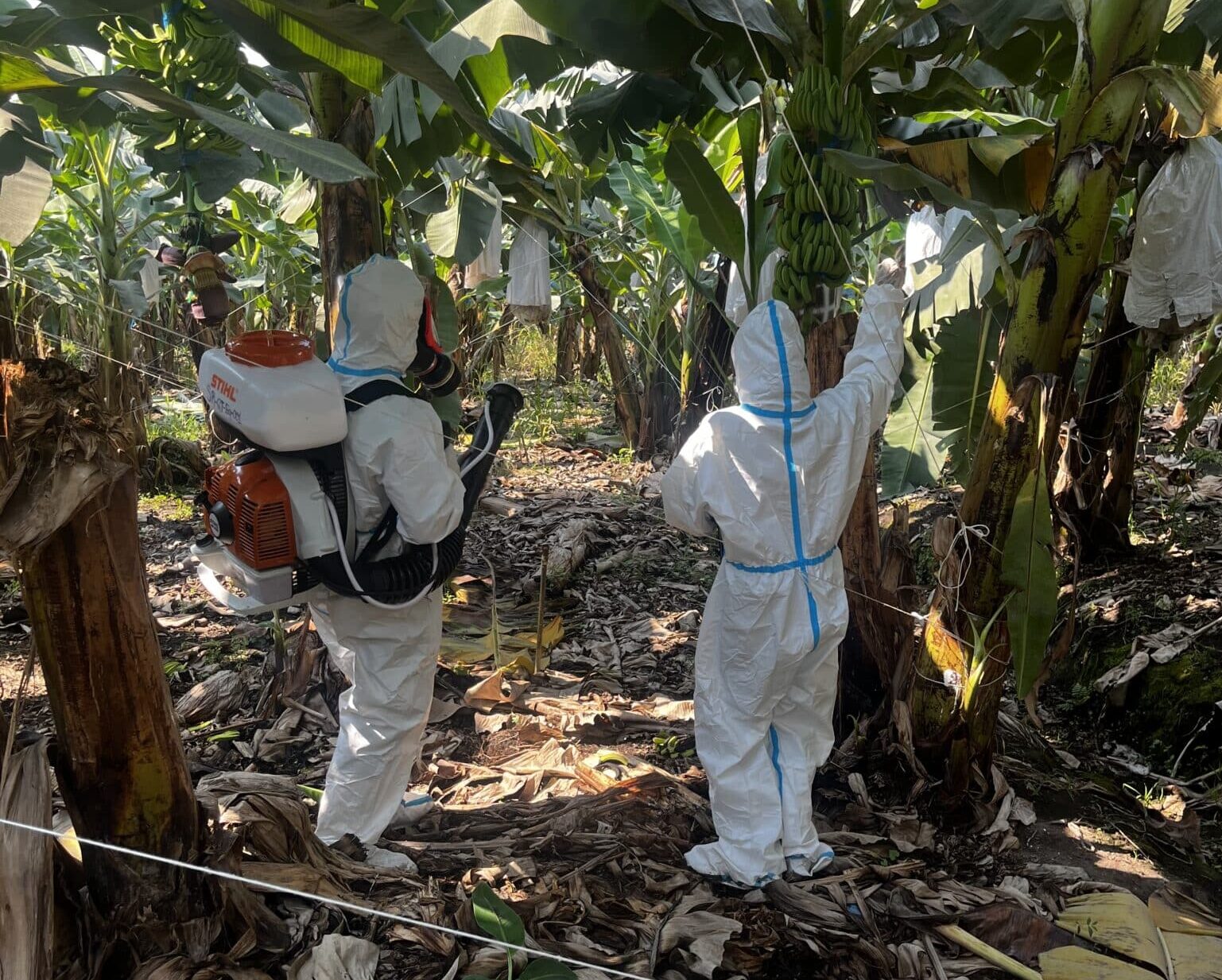Key Takeaways
- SynTech Research is intensifying global crop protection trials for bananas across Latin America, Africa, and Asia.
- Global banana revenues exceeded USD 122 billion in 2024, but disease and climate risks continue to disrupt supply chains.
- Trials focus on managing Black Sigatoka, thrips, Moko disease, and other major pests under GLP standards.
- Research stations in Ecuador, the Canary Islands, and the Philippines lead region-specific testing and regulatory studies.
- SynTech Research is integrating digital monitoring, drone spraying, and biologicals to support sustainable production.
Banana Industry Faces Growing Pressure From Climate and Disease Threats
Bananas remain a critical crop for global food security and trade, generating more than USD 122 billion in revenues in 2024, according to preliminary estimates from the Food and Agriculture Organization (FAO). Major exporters such as Ecuador, Colombia, and Costa Rica are positioned to benefit from rising global demand, provided they can mitigate mounting challenges linked to climate volatility and aggressive plant diseases.
Despite market growth, 2024 brought widespread disruptions to the banana sector. Unpredictable weather patterns, increasing pest pressure, and persistent disease outbreaks continued to threaten yields and quality, underscoring the need for sustained scientific intervention.
Key threats impacting growers include Black Sigatoka, thrips, and Moko disease—issues that have proven difficult to control due to rapid spread, resistance trends, and environmental sensitivities.
SynTech Research Strengthens Scientific Response With GLP-Aligned Trials
Managing Evolving Disease Pressure
SynTech Research is responding to these challenges with comprehensive crop protection trials designed to evaluate new chemistries, biologicals, and integrated management strategies. All research is conducted under Good Laboratory Practice (GLP) standards to ensure regulatory reliability and global applicability.
“Banana growers face unprecedented challenges. Our mission is to provide science-backed solutions that protect crops, livelihoods, and the future of sustainable agriculture,” said Jasper Barnes, Global Business Development Director and Regional Director of Asia Pacific at SynTech Research Group.
Global Trial Network By SynTech Research Reflects Region-Specific Industry Needs
Latin America: Core Experimental Infrastructure
In Ecuador—responsible for over one-third of global banana exports—SynTech Research operates an 8.5-hectare experimental station supporting efficacy studies, biostimulant evaluations, and post-harvest simulations. Parallel work in Colombia and Costa Rica focuses on disease pressure, fruit quality, and durability during transport, with trial designs tailored to each country’s agronomic conditions.
Africa: Advanced Testing in the Canary Islands
The company’s Africa-focused banana research takes place in Adeje, Tenerife, where GLP residue trials, efficacy testing, and post-harvest evaluations are conducted. The location’s pest pressure closely resembles that of tropical Africa, allowing for broader applicability of findings.
Asia: Disease-Focused Work in the Philippines
In the Philippines—the world’s second-largest banana exporter—SynTech supports early-stage compound development and targeted research on Black Sigatoka, Moko disease, and Panama disease through long-standing collaborations with international partners.
SynTech Research: Investing in Innovation and Sustainable Practices
SynTech Research is exploring emerging agricultural technologies including drone-based spraying, digital crop monitoring, and precision tools to enhance trial outcomes. The company is also advancing work with biological crop protection products to meet evolving sustainability goals.
Through its global network, commitment to scientific rigor, and collaborative approach, SynTech Research aims to support a more resilient and productive future for banana growers worldwide.


